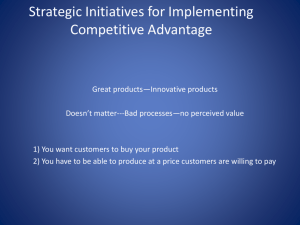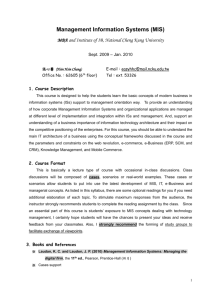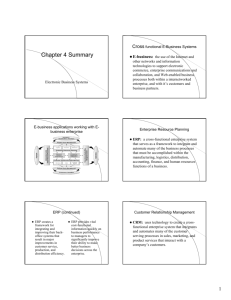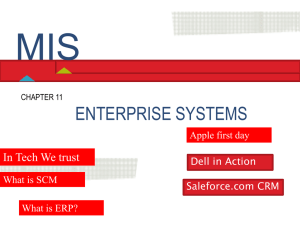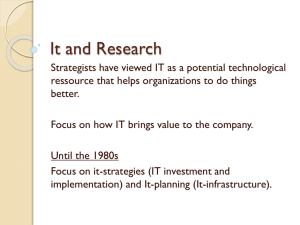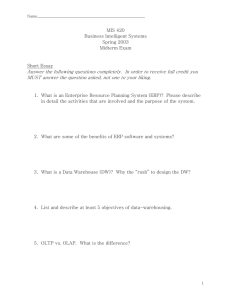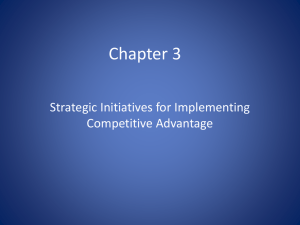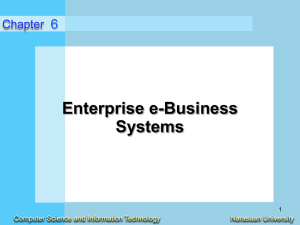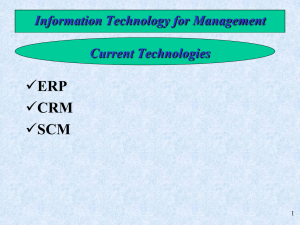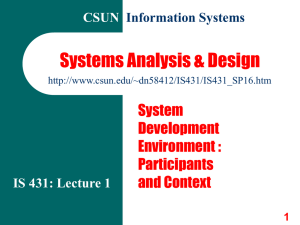Matakuliah : M0284/Teknologi & Infrastruktur E-Business Tahun : 2005
advertisement
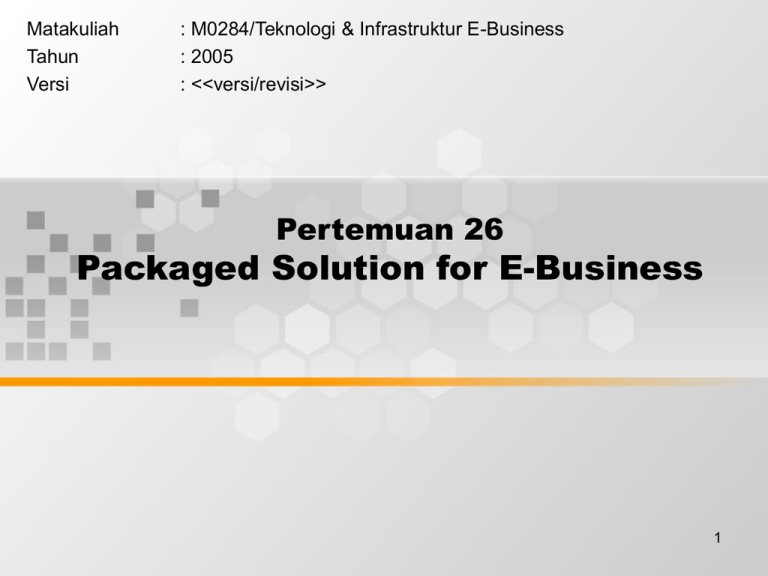
Matakuliah Tahun Versi : M0284/Teknologi & Infrastruktur E-Business : 2005 : <<versi/revisi>> Pertemuan 26 Packaged Solution for E-Business 1 Learning Objectives • Use a coordination theory framework to specify the role of IT in e-business • Explain the nature of enterprise resource planning systems • Appreciate the role of ERP as the platform for ebusiness activities • Understand inter-enterprise systems such as supply chain management (SCM) software • Describe the functionality of customer relationship management (CRM) 2 Overview • • • • • • A coordination theory framework Evolution of ERP systems Why ERP systems? Logic of ERP systems? Supply Chain Management software Customer Relationship Management 3 Supply Chain Management • Two sides of supply chain management 4 Goals of SCM • Minimize costs related to shipment, production and storage efficiency in coordination theory • Maximize business value by being able to respond quickly and flexibly to changing market conditions – flexibility in coordination theory 5 Informational/ Decision-making structure of SCM 6 IT Platform of SCM • Electronic Data Interchange (EDI) based IT platform is text-based, uses proprietary technology and uses 1-1 connection 7 Developing IT Platform for SCM 8 Span and Depth of new IT Platform 9 M-M Communication in new IT Platform 10 Interactions on new IT Platform 11 Customer Relationship Management • Drivers – competition • Goal – profits through developing customer relationship equity provide “delightful” experience, assurance of individualized service • Activities – Marketing – Sales – Customer Service 12 Goals of CRM Software • Data Collection: Automate the process of collection of customer-related data • Data Analysis: Identify high-value customers and help design services to them so as to maximize profits and improve relationship 13 CRM Life Cycle 14 CRM Activities • Sales Force Automation • Marketing Automation • Customer Service and Support Applications 15
